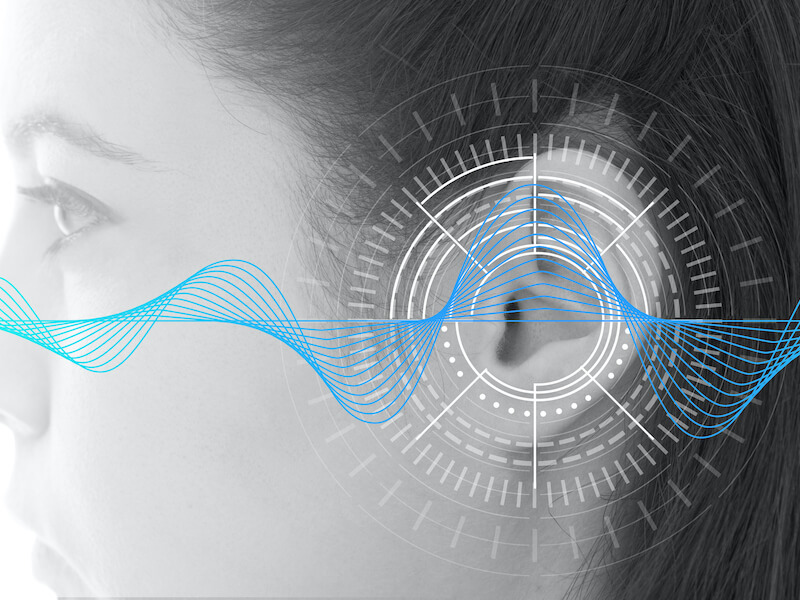
Hearing loss is difficult, if not impossible, to diagnose by yourself. For example, you can’t really put your ear next to a speaker and subjectively measure what you hear. So getting a hearing test will be essential in understanding what’s going on with your hearing.
But there’s no need to be concerned or stress out because a hearing test is about as straightforward as putting on a high-tech pair of headphones.
But we get it, people don’t like tests. Tests are generally no fun for anyone of any age. Taking some time to get to know these tests can help you feel more prepared and, therefore, more relaxed. There’s almost no test easier to take than a hearing test!
How is a hearing test performed?
We frequently talk about scheduling an appointment with a hearing specialist to get your ears assessed. And we’ve likely used the phrase “hearing test” once or twice. Maybe, you’ve heard that there are two kinds of hearing tests and you’re wondering what they’re all about.
Well, that’s slightly misleading. Because you might undergo a few different types of hearing tests, as it turns out. Each one is made to assess something different or provide you with a specific result. The hearing tests you’re most likely to encounter include the following:
- Pure-tone audiometry: This is the hearing test you’re likely most aware of. You listen for a sound on a set of headphones. Hear a tone in your right ear? Raise your right hand. Hear the pitch in your left ear? Same thing! With this, we can figure out which wavelengths and volumes of sound you can hear. And if you have more profound hearing loss in one ear, this test will also determine that.
- Speech audiometry: Sometimes, hearing speech is a challenge for you even though you can hear tones clearly. Speech is generally a more complex audio range so it can be harder to hear with clarity. This test also features a set of headphones in a quiet room. You will listen to speech at various volumes to determine the lowest volume you can hear words and clearly comprehend them.
- Speech and Noise-in-Words Tests: Obviously, conversations in the real world happen in settings where other sounds are present. The only actual difference between this test and the Speech audiometry test is that it is performed in a noisy setting. This mimics real-world situations to help determine how your hearing is working in those situations.
- Bone conduction testing: This diagnostic is designed to measure the performance of your inner ear. A little sensor is placed near your cochlea and another is put on your forehead. Sound is then sent through a small device. How efficiently sound vibrations move through the ear is measured by this test. If this test establishes that sound is traveling through your ear effectively it could suggest that you have a blockage.
- Tympanometry: Occasionally, we’ll want to check the overall health of your eardrum. This is accomplished using a test called tympanometry. During this test, a small device will gently push air into your ear and measure exactly how much your eardrum moves. The results of this test can indicate whether there’s a hole in your eardrum, fluid behind your eardrum membrane, and more.
- Acoustic Reflex Measures: During this test, a tiny device delivers sound to your ear and observes the muscle feedback of your inner ear. The reflexive reaction of the muscle movement of your inner ear will help us discover how well it’s working.
- Auditory Brainstem Response (ABR): An ABR test attempts to measure how well the brain and inner ear are responding to sound. To achieve this test, a couple of electrodes are strategically placed on your skull. This test is totally painless so don’t worry. It’s one of the reasons why ABR testing is used on everyone from grandparents to newborns!
- Otoacoustic Emissions (OAE) Testing: This diagnostic is designed to track how well your cochlea and inner ear are working. It does this by tracking the sound waves that echo back from your inner ear into your middle ear. If your cochlea isn’t working properly or there’s a blockage, this test will detect it.
What do the results of hearing tests tell us?
Chances are, you usually won’t undergo every single one of these hearing tests. Generally, your particular symptoms will dictate which of these tests will be relevant.
What are we looking for in a hearing test? Well, in some cases the tests you take will expose the root cause of your hearing loss. The hearing test you take can, in other cases, simply help us rule out other causes. Essentially, we will get to the bottom of any hearing loss symptoms you are experiencing.
Generally, your hearing test will uncover:
- Whether your hearing loss is in a specific frequency range.
- Whether you are dealing with hearing loss or experiencing the symptoms related to hearing loss.
- Which treatment strategy is best for your hearing loss: We will be more effectively able to address your hearing loss once we’ve determined the cause.
- How profound your hearing loss is (or, if you’ve had multiple tests over the years, how your hearing loss might have advanced).
Is there any difference between a hearing screening and a hearing test? The difference between a quiz and a test is a good analogy. A screening is very superficial. A test is designed to provide usable information.
It’s best to get tested as soon as you can
So as soon as you observe symptoms, you need to schedule a hearing test. Relax, you won’t have to study, and the test isn’t stressful. Nor are hearing tests invasive or generally unpleasant. We will provide you with all of the information about what to do and not to do before your hearing test.
It’s simple, just call and schedule an appointment.
